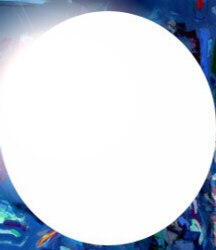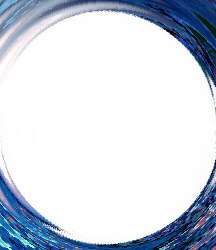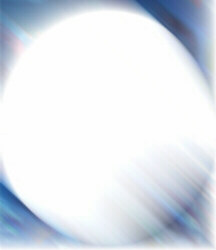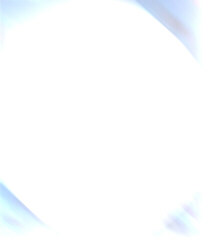The moonlight sparked and popped across the sand and pirouetted along the surface of the Dead Sea. As we entered the hot-spring-fed pool, the boisterous chatter of that day’s tourists and regulars still seemed to cling to the chaise-lounge chairs. But the unusually warm winter breeze tugged it loose, brushing across my electric-grid skin on its way to whisper my secret to the dusty mountains around us. This was the Judean desert on Ecstasy.
I met Yochai when I was looking for plants for the apartment my partner I and were living in, and heard that a gay guy owned a greenhouse and gave discounts to members of his tribe. I didn’t think it would be easy to befriend Israelis in any meaningful way since I not only didn’t speak Hebrew very well, but also because I was transient, and would be gone before they had established any meaningful connection with me. So, ever since meeting him, Yochai had become my token Israeli friend, and invited us to many of the “insider” activities in Israel, like hanging out at his apartment with a bunch of other gay Israelis and watching the Israeli version of “America’s Next Top Model”.
But this particular evening, he had invited us to join him on his weekly winter rite: a Friday evening drive to the Dead Sea, where he and his boyfriend jump a fence, enter Hof Mineral (Mineral Beach) after it’s closed, and float around in its hot spring-fed pool.
So, after parking the car an inconspicuous distance from the beach, navigating through the dark moonscape between us and our destination, and climbing over a chain-link fence, we entered the hot-spring fed pool, bubbling in its bamboo hut. The light of the moon cast a milky glow on the surface of the noticeably sulfurous water, and illuminated the beach beyond. As we undressed, obeying the transparency demanded by this liminal space, my mind was occupied with whether or not to take Ecstasy. It was something I had avoided, partly out of fear of ingesting anything harder than pot (my usual drug of choice), but also because of a long-unvisited memory that had decided to haunt me on this occasion.
***
When I was hanging out in my dorm freshman year, a notorious drug-dealer had asked if I wanted to “roll”. Unaware of what that meant, but wanting to somehow bond with this cute guy with whom I shared absolutely nothing in common, I said, “sure”. He took my fifteen dollars, handed me a tiny white pill, and walked away. I didn't want it, and instead gave it to Eric, a friend of mine who seemed to have tried every drug in the alphabet.
A few weeks later, Eric's roommate told me that Eric went crazy after taking that pill. At the thought that I had caused a friend of mine to go insane, I choked with guilt and fear. Sure, Eric had treated his body like a mad scientist’s chemistry lab, but I had contributed the fateful dose. Walking to class a few months later, as the autumnal hill began to erupt with color, an old white van pulled up, and stopped. Eric emerged, and with a drunken slur in his speech, greeted me warmly and told me about his life. He had been taking dance classes at a community college, and living with his mom during the supposed rehabilitation that he was undergoing.  After seeing a shrink, he found out he was bipolar, and was relieved to be on meds that allowed him to stop seeing meaning where there was none. I never saw him at school after that, though I heard about him every once in a while.
After seeing a shrink, he found out he was bipolar, and was relieved to be on meds that allowed him to stop seeing meaning where there was none. I never saw him at school after that, though I heard about him every once in a while.
I never stopped feeling implicated in Eric’s downfall, nor believing in the destructive power of Ecstasy. But now, five years and an ocean away from that tragedy, everyone I was going to be spending this evening with would be in an altered state, and I didn’t want to remain behind, unable to communicate with the subtleties of their experiences. It took exhaustive online research about the drug to justify this one-time exception to my general rule of avoiding it.
Halacha also helped. I was in Israel for the first time, and, like many visitors, I had taken on more Jewish religious practice while studying and experiencing Jewish practice there. It was easy to do, living in Jerusalem, where Jewish sacred time is the life-blood of the city. It pours through its streets in dance and song, in etrog and lulav markets and booth-lined streets. It hums in serpentine gatherings of chanting Hasidim. It marks itself with the almond trees’ first bloom. And I knew that because the laws of Shabbat prohibit lighting fires (and, therefore, smoking pot), taking this pill was the only halachic way to get high. The sages gave me two thumbs up.
***
It came my turn to take one of the small butterfly-imprinted pills. I placed it on my tongue, felt it shuttle down my throat. Almost immediately I began to feel the first kiss of Ecstasy: my heart rate increased, and my whole body transformed into one huge erogenous zone. Everything around me – moonlight, hot spring water, naked bodies, sea and beach – took on such sublime beauty that words were stunned in my throat, climbed desperately to my lips, and then fell, paralyzed, into the charged air around me. This was, undoubtedly, Whitman’s “Body Electric”.
 The desire to ground this unbelievable erotic charge, this sense of limitless beauty, in the flesh of another being – fondling, kissing, trying, perhaps, to connect in sexual union – was overwhelming. But as Yochai and his partner began to entangle in one another’s limbs, this initial feeling began to compete with the speediness of the drug. My restless legs pulled me out of the enclosed hut and sought the boundless water, with the instinct of a freshly hatched sea turtle.
The desire to ground this unbelievable erotic charge, this sense of limitless beauty, in the flesh of another being – fondling, kissing, trying, perhaps, to connect in sexual union – was overwhelming. But as Yochai and his partner began to entangle in one another’s limbs, this initial feeling began to compete with the speediness of the drug. My restless legs pulled me out of the enclosed hut and sought the boundless water, with the instinct of a freshly hatched sea turtle.
Perhaps it was the months of yeshiva study, my aspirations to become a rabbi, or the fact that I was in the Holy Land. But whatever it was, holiness infused my vision. I felt that the steps I took to the seashore were shared with millions of other feet – feet reaching the Western Wall or Bethlehem for the first time, or circumambulating the qaba or a stupa in India. This was the awe of the pilgrim.
The sharp salt crystals on the ground only served to heighten my fervor. My feet had the sensitivity of a sexual organ, and, though the crystals never broke my skin, I felt (and moaned), like the Earth was making love to me. In the perception of treading on those saline structures, wordless like all the rest, “I” was not traveling upon “them”. There was just the sensation of delightful, teasing, pain. It burnt through my thoughts like white fire, while cool puddles of water thrilled my feet as the shore began to dip below the level of the sea. I wrapped my arms around my own bare, moon-silvered torso. I danced along the beach, in love with all that is divine.
And at that point, everything was.
The moon reflected the hidden sun’s luminescence such that something more sensational than light poured from the cosmos, and hummed a nigun to the shore. The sea wove the silver ribbons scattered upon its surface with patience, intelligence and skill. My feet drank in the unique blessing of each clump of salt, pebble and grain of sand. The mountains yawped like old Whitman to the star-filled ether above.
 Then, though it was winter, I entered the sea. As I waded toward the open horizon, though the hypersalinated waters continued to support their cleansing, painful crystals, they also had other surprises in store for me – specifically, the Dead Sea’s famed mineral-rich mud deposits. My toes found one of mother earth’s infinite wombs and wriggled deep into her mystery. As my toes, then ankles, then calves went in and in, I kneaded the ground like a nursing kitten that yearns for milk. Deep, warm, slimy, my feet explored it. Though only part of me touched her depths, my entire body tingled with this joy. This unmistakable feeling of transformative union, almost sexual in nature, became a kind of wordless knowledge.
Then, though it was winter, I entered the sea. As I waded toward the open horizon, though the hypersalinated waters continued to support their cleansing, painful crystals, they also had other surprises in store for me – specifically, the Dead Sea’s famed mineral-rich mud deposits. My toes found one of mother earth’s infinite wombs and wriggled deep into her mystery. As my toes, then ankles, then calves went in and in, I kneaded the ground like a nursing kitten that yearns for milk. Deep, warm, slimy, my feet explored it. Though only part of me touched her depths, my entire body tingled with this joy. This unmistakable feeling of transformative union, almost sexual in nature, became a kind of wordless knowledge.
Yadati.
I was entering Pache Mama in her dangerous embrace – the same firm, but comforting grasp with which she has, and will always, reclaim into her depths all she has ever borne forth, living and dead, manufactured and natural. She had taught me the meaning behind Shiva Nataraja’s cosmic dance, as she spun me in hers.
I no longer had boundaries left to monitor, though somewhere in the back of my mind was the fear she would let me sink too far. That I somehow wouldn’t return, wouldn’t ever again be the same.  My body writhed in ecstasy. My legs danced in holy abandon. I embraced myself, in awe of all touch.
My body writhed in ecstasy. My legs danced in holy abandon. I embraced myself, in awe of all touch.
This sensed state of interpenetration, this mental state of non-dualism, made of “me” a cosmic conduit.
I was awake through love. All normally hidden in the separate realms was unveiled and whole.
My vocabularies for religious experience piped up in unison, once again structuring my observations: upaya (Sanskrit for “skillful means”) had come to penetrate and awaken the receptive prajna (“wisdom”); the male God had come, again, this Shabbos, to join in sexual union with Shechinah, his goddess-consort. It was a taste, as the sages say of Shabbas, of the olam haba (“the world to come”). My body, pierced by the crystals and thrusting into the mud bottom of the sea, was able to play both roles. The feminine and the masculine were unified in my queer body.
***
It's now many months later. I have a file called “Reminders” on my computer, uttering through two veiled statements that I may have been closer to understanding what Shabbat was about that particular night than after my entire year of study in Israel, all the Shabbatot I celebrated before it, and even those I might observe afterwards:
I'm feeling so alive; I don't want to play dead.
Judaism is all about sex with God.
The way that the Divine entered my body, and I Its, allowed me to feel the transformative power of nature and the earth in a way I never had before. A few weeks later, I took Beliefnet’s “Belief-O-Matic”, which – based on a series of questions about your spiritual practices and beliefs – tells you what existent religion yours best fits into. It was hardly a surprise when, of its twenty results, “Neo-paganism” was my second-best match (right after Buddhism).
Still, I wonder now whether the feeling of revelation was just a result of the drug playing with me. Or did the drug actually open me to a deeper reality?
Last summer, I followed my newly named neo-pagan self to a shamanic fire ceremony, where we were instructed to choose something we wanted to let go of, and symbolically cast it into the fire. As the ceremony began, many people around me, entranced with the drum and seemingly possessed by the fire spirit, entered an altered state, danced or shook. Despite my growing discomfort with the idea of submitting to a fire deity, the shaman invited me into the circle twice, and I gave in. Amidst the sounds of drums, I swayed in indecision, but – motivated by a desire to get more space around, and ultimately renew our intimacy – finally infused my stick with the intention to let go of my relationship to God.
 Lying on a bench after the ceremony, I silently cried for help out of my confusion as shooting stars broke through the atmosphere in a fiery glow. Rather than feeling like some truth had been revealed to me, I was left with the sense that the ground had been torn out from under me. This ritual cut me off, not only from the dynamic, interpenetrative God I loved, but also the God evoked by the title tzuri: my “rock”. My refuge. The stabilizing force in my life. I realized then my need to relate to holiness both as a grounding and transcendent force. But even more than a desire for balance, that ceremony reminded me that, though I’ve sought intimacy with God through Sufi zikr, drum circles, Buddhist meditation and drug experiences, these paths have been yoked together into one journey: seeking my Beloved.
Lying on a bench after the ceremony, I silently cried for help out of my confusion as shooting stars broke through the atmosphere in a fiery glow. Rather than feeling like some truth had been revealed to me, I was left with the sense that the ground had been torn out from under me. This ritual cut me off, not only from the dynamic, interpenetrative God I loved, but also the God evoked by the title tzuri: my “rock”. My refuge. The stabilizing force in my life. I realized then my need to relate to holiness both as a grounding and transcendent force. But even more than a desire for balance, that ceremony reminded me that, though I’ve sought intimacy with God through Sufi zikr, drum circles, Buddhist meditation and drug experiences, these paths have been yoked together into one journey: seeking my Beloved.
Though I identify with the transformative power of earth-based – and other modes – of spirituality, I still feel that I ultimately need to claim its roots within my own tradition. The union I felt with the earth at the Dead Sea had been a kind of sacred partnership with the Divine. The fire ceremony felt more like possession by, and submission to, a spirit. So it wasn't just the drug; or rather, the drug enabled me to see a truth that other rituals did not.
Taking Ecstasy at the Dead Sea showed me ways to reveal rich worlds within my own tradition. It taught me that I am easily able to reach ecstatic heights. But more important, perhaps, it showed me my own capacity for receiving deep insights when I feel safe enough to open myself to the awesome unfolding of life around me. It's ironic that my encounter with the Divine took place at the site of Sodom and Gomorra, cities of "sin," but also, for me, part of my sexual heritage as a boundary crosser, someone who can experience both the penetrative and receptive qualities of God in his body. I look forward, someday, to my return to these cities on a plain, unveiled to me as holy beyond words.
Images: Jay Michaelson







